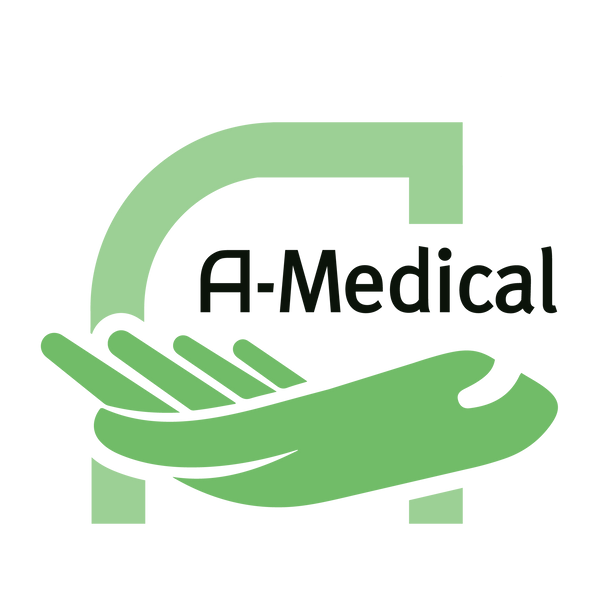
Best Time to Take Omega-3 for Maximum Absorption
Share
What Is Omega-3 and How Does the Body Absorb It?
Omega-3 fatty acids are essential nutrients the body cannot produce in sufficient quantities. They support heart health, brain function, vision, and the immune system. Among the most beneficial forms are EPA (eicosapentaenoic acid) and DHA (docosahexaenoic acid), found in fatty fish and fish oil supplements.
When you consume omega-3s, your body doesn’t just absorb them directly. Instead, they undergo a process in the digestive system. Once ingested, omega-3 molecules need to be broken down with the help of bile, which is released when you eat fat. This process allows the fatty acids to form micelles, which are absorbed through the walls of the small intestine. If there's not enough fat in your meal, or if the supplement is taken on an empty stomach, this process becomes less efficient.
Understanding how omega-3 is absorbed is essential for optimizing its benefits. Factors like the presence of dietary fat, digestive enzymes, and supplement form all play a role in how well your body can use what you take.
Why Supplement Timing Affects Omega-3 Absorption Rates
The timing of your omega-3 supplement can influence how much of it your body actually uses. This is because digestion operates on a rhythm, and the conditions required for fat absorption aren’t constant throughout the day.
After you eat, your digestive system releases bile and enzymes that help break down fats. These substances are vital for omega-3 absorption. Taking a supplement during this window, when bile flow and enzymatic activity are at their peak, leads to higher absorption.
On the other hand, taking omega-3 at a time when the digestive system is relatively inactive, such as long after a meal, may significantly reduce how much EPA and DHA your body can utilize. That’s why pairing your supplement with a meal—especially one containing fat is key.
Should Omega-3 Be Taken Before or After Meals?
The most effective time to take omega-3 is right after you eat. That’s when the digestive process is already active, and bile is flowing. If you take it before a meal, your body hasn’t started producing the enzymes and bile necessary for absorption.
Waiting too long after a meal can also be counterproductive. The digestive response begins to taper off, and the absorption window narrows. For best results, take your omega-3 either during your meal or within 10 to 20 minutes of finishing it.
Taking Omega-3 With High-Fat Meals: Does It Boost Absorption?
Taking omega-3 with a high-fat meal significantly improves its absorption. Fat in the meal triggers the gallbladder to release bile, which helps emulsify the omega-3 fats. This step is essential for transporting them across the intestinal wall.
A study published in the American Journal of Clinical Nutrition found that omega-3 absorption nearly doubled when taken with a meal containing at least 10 grams of fat. Foods like eggs, nuts, oily fish, or avocado can provide the necessary fat content. Without dietary fat, the absorption rate drops, sometimes by more than 50 percent.
Morning vs Evening: When Is the Best Time to Take Omega-3?
There is no universal rule that says omega-3 should be taken in the morning or evening. What matters more is whether you’re pairing it with the right kind of meal. If your breakfast is low in fat but dinner includes healthy fats, then taking it with dinner is the better choice.
Consistency also matters. If you take your supplement at the same time each day, your body can establish a rhythm in how it processes and utilizes the fatty acids. So choose the time of day when your fat intake is highest, and stick with it.
Can You Take Omega-3 on an Empty Stomach?
No, taking omega-3 on an empty stomach is not recommended. Without food, and particularly without fat, your body won't produce enough bile to absorb the fatty acids efficiently. As a result, a large portion of the supplement may pass through your system without being fully used.
If you're in a situation where you haven’t eaten a full meal, even a small snack with some healthy fat can help. A spoonful of peanut butter or a piece of cheese is enough to trigger the digestive processes needed for better absorption.
Split Dosing or Once Daily: What Increases Absorption Efficiency?
Split dosing, where you take smaller amounts of omega-3 with two separate meals, can provide more stable blood levels throughout the day. This approach may also reduce side effects like fishy burps or stomach discomfort.
Does Omega-3 Absorption Change Based on Supplement Form (Capsule, Liquid)?
The form of your omega-3 supplement can make a difference, especially when it comes to how quickly it’s absorbed. Liquid fish oil tends to be absorbed faster than capsules, especially if the capsules are coated to delay breakdown.
This difference becomes less important if the supplement is taken with a meal that contains fat. In that case, both forms offer similar benefits. If you’re taking omega-3 without food, an emulsified or liquid version may be slightly more efficient.
Can Omega-3 Be Taken With Other Supplements or Medications?
Omega-3 can be taken with most supplements, especially fat-soluble vitamins like A, D, E, and K. These nutrients share similar absorption pathways, and taking them together may even improve their uptake.
If you're taking medications, especially blood thinners like warfarin or aspirin, it’s a good idea to speak with your doctor. Omega-3s can have a mild blood-thinning effect, and combining them with similar drugs may increase that effect in some individuals.
Timing Omega-3 Intake for Specific Goals (Heart, Brain, Joints, Inflammation)
If your goal is heart health, consistency is more important than timing. Daily intake with food helps maintain a steady presence of EPA and DHA in the bloodstream.
For brain health, evening dosing may support overnight repair and DHA incorporation into neural membranes. Some research suggests that nighttime intake aligns better with the brain’s lipid metabolism.
For joint health and inflammation, maximizing absorption is the priority. This means taking the supplement with your fattiest meal to ensure the anti-inflammatory components reach systemic circulation effectively.
FAQ
Can I Take Omega-3 Before Bed for Better Results?
Yes, you can take omega-3 before bed if you’ve eaten recently and your meal contained fat. The timing itself isn’t a problem, but the presence of dietary fat is essential for proper absorption.
Does Skipping a Meal Affect Omega-3 Absorption?
Yes. Without food, especially without fat, your body lacks the conditions needed to absorb omega-3 efficiently. Skipping a meal can lower the supplement's effectiveness.
Can I Take Fish Oil After Drinking Coffee?
Coffee doesn't directly interfere with omega-3 absorption, but if you drink it on an empty stomach, absorption will be poor. If your coffee is part of a breakfast with fat, then it’s fine to take the supplement afterward.
How Long After Eating Should I Wait to Take Omega-3?
Ideally, you should take omega-3 during your meal or within 10 to 20 minutes after finishing. This is when your digestive system is most active and ready to process fats.
